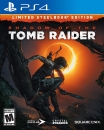pokoko said:
Depends on what you're looking for in a review. Supposedly, the true purpose is to inform the consumer. This makes giving a perfect mark to a game with issues potentially deceptive. If consumers think that a score is a summary of the review--flaws included--then they might be surprised when a writer adds on the score as some kind of "personal enjoyment meter" instead. That's what Jim Sterling does, which makes it odd that some of the same people protesting his scores are championing perfect 10s. It's one or the other, people. If you want the totally subjective "I enjoyed the game THIS MUCH" perfect scores then shut up about the "I only enjoyed it a little so it gets a 7" scores. He's been doing that since he worked at Destructoid, where he gave games like Deadly Premonition and KillZone 3 perfect scores. At some point, review scores became a thing unto themselves, where they were more about what the reviewer wanted than about informing the consumer. Ah, the rise of "internet personalities." Personally, I don't really have a lot of respect for that method. I'm reading that review to find out about the game, warts and all, not because I want a completely subjective look at what strokes the reviewer's beard. It's like I'm going in for an evaluation and get a note back from the grader that says, "you got several questions wrong but I really liked your answer for #83 so I'm giving you a 100!" I would find that kind of lame because that score does not give me an accurate evaluation. All of this, of course, is part of what makes meta-scores somewhat meaningless, as it combines scores with different scales, grading criteria, and philosophies. Beyond meta-scores, I don't think very much of scores in general. If someone can't be bothered to read the actual review then they must not care very much to begin with. The reason most people give so much attention to scores is because they're looking for validation, not information. On top of that, as we've seen just recently, some fans aggressively try to create an atmosphere where reviewers can be intimidated into giving beloved franchises high scores, thus calling into question the honesty of the whole damn shebang. So, yeah, if people are so gung-ho about scores being personal enjoyment awards then the occassional reviewer pissing in their collective cornflakes is part of the package. |
I think there's room for both methods. When I review a game I describe its mechanics, modes, and gameplay, but I also assign pros and cons to those features based on my subjective priorities.
Ideally, consumers will find a group of reviewers among the larger pool that reflect their own priorities. Following that group would be a lot more helpful than staring at some context-less aggregate score on Metacritic.



































































